Athletics doping: Russia Rio Olympics pain 'could be worth it'
- Published
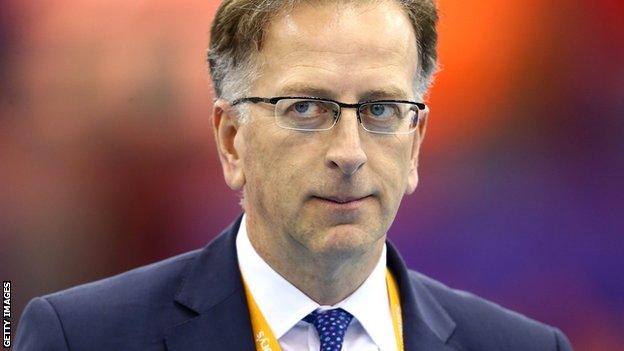
Ed Warner has been chairman of UK Athletics since 2007
Russian athletes missing the 2016 Rio Olympics to ensure a clean Tokyo 2020 Games would be a "price worth paying", says UK Athletics chief Ed Warner.
The athletics federation of Russia has been provisionally suspended from international events after a report alleged "state-sponsored" doping.
The "longer-term quality" of the Olympics rests on the sport "being seen to be clean", Warner told BBC Sport.
"If you've got to have pain in Rio to ensure Tokyo is clean, so be it."
Speaking on BBC Radio 5 live's Sportsweek, he added that, while he would like Russian athletes to be in Rio, he does not want a "murky compromise" to allow their return.
Thomas Bach, president of the International Olympic Committee, previously said he believed Russian athletics would resolve its doping issues in time to field competitors in Rio.
On Sunday, Bach told Associated Press: "The important goal is not bringing them back. The goal has to be Russia being compliant again with all the international anti-doping regulations. That is the important thing, so that we have an even playing field for all the athletes."
Vadim Zelichenok, the acting president of the All-Russian Athletics Federation (Araf), says the organisation has "worked out a crisis plan" and "discussed the measures that will help us to restore our IAAF membership in two or three months".
Speaking earlier, Warner said: "The World Anti-Doping Agency's report had a lot of demands placed on Russia to demonstrate that it has systems and controls and you can't build these things overnight, you can't just wave a magic wand.
"And, let's remember, sports scientists will tell you the benefits of the use of illegal performance-enhancing drugs persist well beyond, for example, a two-year ban, so even if Russia is allowed back in to the Olympics next year there will be athletes lining up who may or may not have served bans, or may never have been caught."
More on athletics doping scandal |
|---|
Warner also suggested Russian athletics needs "a whole new generation of administrators and coaches" and they might need to be brought in "from the outside".
He added: "You clearly don't have a culture of foreign nationals fulfilling those roles within Russia and maybe that has to happen.
"It's not going to be easy because you're always up against an in-built resistance to apparent interference from the west. It's geo-politics played out on the sporting field and it's a great shame."
Former Olympic gymnastics champion Olga Korbut echoed Warner's views on the need for new coaches.
The 60-year-old, who won four Olympic titles competing for the Soviet Union in the 1970s, said: "They have to change to beat the suspension from the Olympic Games. Not just the athletes involved, but the coaches as well.
"They have to change all who have been involved - doctors and coaches and everybody. They have to be replaced and start over again without cheating."
Meanwhile, Russian Sports Minister Vitaly Mutko, who was at the Araf meeting, said the country could pass a law that makes doping a criminal offence.
As it stands, Russian athletes may not enter international competitions, including the World Athletic Series and Rio Olympics, which begin on 5 August next year.
- Published17 November 2015
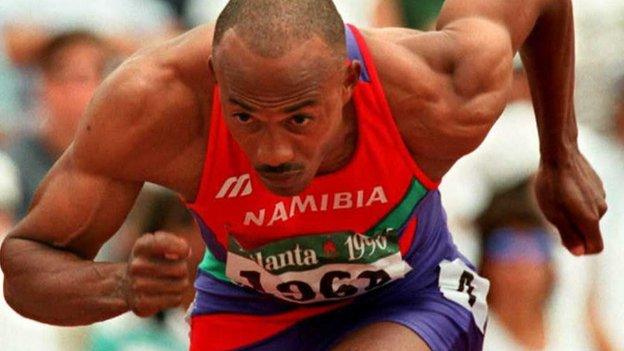
- Published15 November 2015
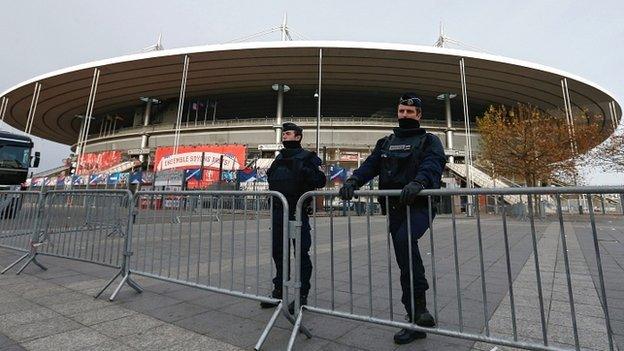
- Published16 November 2015
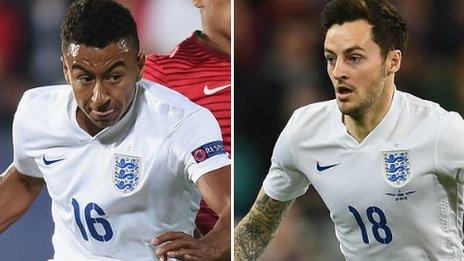
- Published15 November 2015
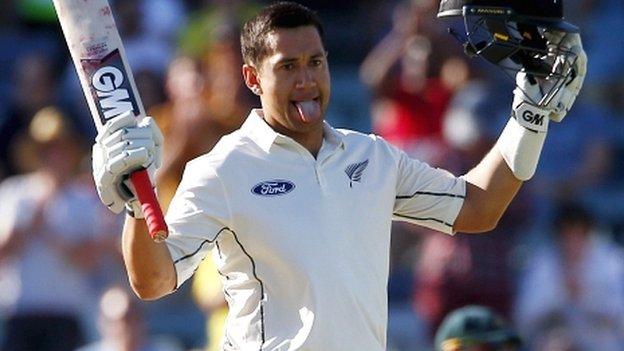
- Published8 February 2019
